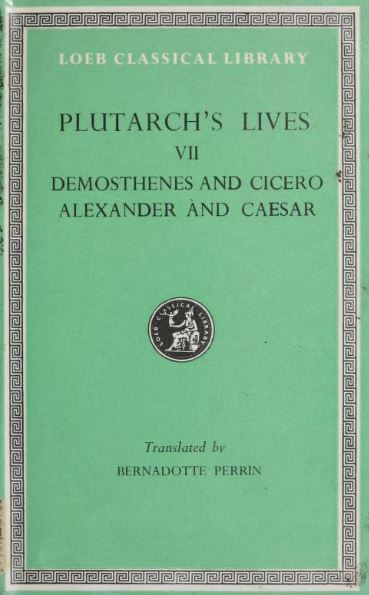‘Plutarch’s Lives’ PDF Quick download link is given at the bottom of this article. You can see the PDF demo, size of the PDF, page numbers, and direct download Free PDF of ‘Plutarch’s Lives’ using the download button.
Plutarch’s Lives PDF Free Download

Plutarch’s Lives of the Noble Greeks and Romans, commonly called Parallel Lives or Plutarch’s Lives, is a series of 48 biographies of famous men, arranged in pairs to illuminate their common moral virtues or failings, probably written at the beginning of the second century AD.
Life of Plutarch
Plutarch was probably born between AD 45 and AD 50, in the small town of Chaeronea in Boeotia.
His family appears to have been long established in this place, it being the scene of the final destruction of the independence of Greece when Philip defeated the Athenian and Boeotian armies in 338 BC.
It was here that Sulla defeated Mithridates, and in Rome’s great civil wars, we hear again, this time from Plutarch himself, of the suffering of the citizens of Chaeronea.
Nikarchus, Plutarch’s great-grandfather, along with all other citizens, without exception, was ordered by a lieutenant of Marcus Antonius to transport a quantity of corn from Chaeronea to the coast opposite the island of Antikythera.
They were forced to carry corn on their shoulders like slaves, and were threatened with a whip if they were negligent.
After they had completed one trip and were preparing their load for another trip, good news arrived that Marcus Antonius had lost the Battle of Actium.
whereupon both the officers and soldiers of his party stationed at Chaeronea immediately fled for their safety, and the provisions thus collected were distributed among the inhabitants of the city.
However, when Plutarch was born, such a battle-like scene was not expected. On the shores of the Mediterranean, little more than the traditions of warfare survived.
Sometimes faint echoes of a struggle with barbarian tribes were heard on the Danube.
or in the remote Syrian deserts, but the Pax Romana was established over almost the entire world known to the ancients.
Battles were indeed fought, and armies marched on Rome, but this was only to decide who would be the nominal head of the vast system of the Empire.
And those who were once free cities, countries and nations submitted without hesitation to the one who represented that irresistible power.
It is conceivable that a political system which destroyed all national individuality, and made patriotism in its highest sense hardly possible, would have reacted adversely to the literary character of the era.
Yet nothing of the kind can be urged against the times which produced Epictetus, Dio Chrysostom, and Arrian; While in Rome, Pliny the Younger, Tacitus, Martial and Juvenal were reminiscing about the Augustan era.
From several passages of Plutarch’s writings, we learn that he studied under a master named Ammonius in Athens.
For example, at the end of his Life of Themistocles, he mentions a descendant of the great man who was his fellow student at the house of the philosopher Ammonius.
Then, he tells us that once Ammonius, at his afternoon lecture, saw that some of his classmates had joined too freely in the enjoyment of the table, he ordered his own son to be flogged.
“Because,” said he, “the young gentleman cannot eat his dinner without pickles,” he at the same time cast his glance upon the other offenders in order to make them sensible that the reprimand should apply to them also.
To complete his education, he went on a trip to Egypt.
It appears that the “wisdom of the Egyptians” had always been of interest to the Greeks and to Alexandria in this period.
With its famous library and memoirs of the Ptolemies, Callimachus and Theocritus, it was an important center of Greek intellectual activity.
Plutarch’s treatise on Isis and Osiris is generally considered a juvenile work suggested by his visits to Egypt.
He certainly became proficient in all of Greco-Egyptian learning, although we have no evidence of how long he stayed in Egypt.
He does indeed refer to a feast given in his honor by some of his relatives on the occasion of his return home from Alexandria, but we can tell nothing of his age at the time.
| Author | Plutarch |
| Language | English, Roman |
| No. of Pages | 652 |
| PDF Size | 28.1 MB |
| Category | Biography |
| Source/Credits | archive.org |
- Download Part 1
- Download Part 2
- Download Part 3
- Download Part 4
- Download Part 5
- Download Part 6
- Download Part 7
- Download Part 8
- Download Part 9
- Download Part 10
- Download Part 11
Plutarch’s Lives PDF Free Download
